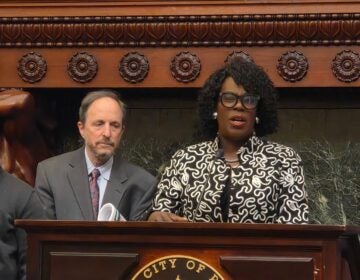The Kyl/Colbert counterfactual face-off
Only a stone-cold fool would try to cover ground where Stephen Colbert has already planted his satiric flag.
So let me begin.
Senator Jon Kyl of Arizona, as you may have heard, has a creative approach to arithmetic. During a recent budget debate on the Senate floor, Kyl offered this analysis of the organization Planned Parenthood:
“If you want an abortion, you go to Planned Parenthood. That’s well over 90 percent of what Planned Parenthood does.”
This was a talking point in favor of wiping out the 363 million bucks Planned Parenthood gets annually from the feds (none of which, by law, can be spent on abortions.)
Even in the sordid history of abortion rhetoric, Kyl’s statement was a whopper. Planned Parenthood reports that abortions make up 3 percent of its services. Even if you’re skeptical of that self-reporting, the true number must still be a very long walk from 90 percent.
When people objected to this public lie, a Kyl spokesman alibied that what his boss had said was “not intended to be a factual statement.” Really?
That sent Comedy Central’s Colbert into overdrive. He launched a day-long stream of tweets containing outrageous claims about Kyl, all gathered under the hashtag (or Twitter theme) of “not intended to be a factual statement.”
A couple of my favorites: “Jon Kyl once ate a badger he hit with his car.” And: “Legally, Jon Kyl cannot be within 100 yards of Helen Mirren.” As others joined in the fun, counterfactuals about Kyl briefly became the Twitterverse’s main sport.
Colbert’s revenge demonstrates that the best remedy for obnoxious free speech is corrective free speech. But in our new world of digital silos, where everyone feels entitled to invent his own facts, satire, while potent, is not enough. We also need honest-broker fact-checking. Otherwise, partisans can just dismiss the satire as coming from partisan voices, as routinely happens with Colbert and his buddy Jon Stewart.
During the rise of social media, Web 2.0 enthusiasts declared obsolete those old-fashioned gatekeeper media such as newspapers. The virtuous “crowd,” they proclaimed, could collectively check its own facts.
And that happens occasionally. Occasionally. Just as often, a Google search brings to your screen a Babel of biases, rumors, and half-baked rants.
Luckily, reliable fact checkers do exist. Politifact.com, which is the first place I looked for a fair analysis of the Kyl claim, does the job with relentless panache. Factcheck.org, based at Penn, is also good, and getting livelier. There are others, like Snopes.com.
Senators should not be allowed to lie with impunity. We need our journalists to call out the lies, and our jesters to give liars the punishment they deserve.
WHYY is your source for fact-based, in-depth journalism and information. As a nonprofit organization, we rely on financial support from readers like you. Please give today.




